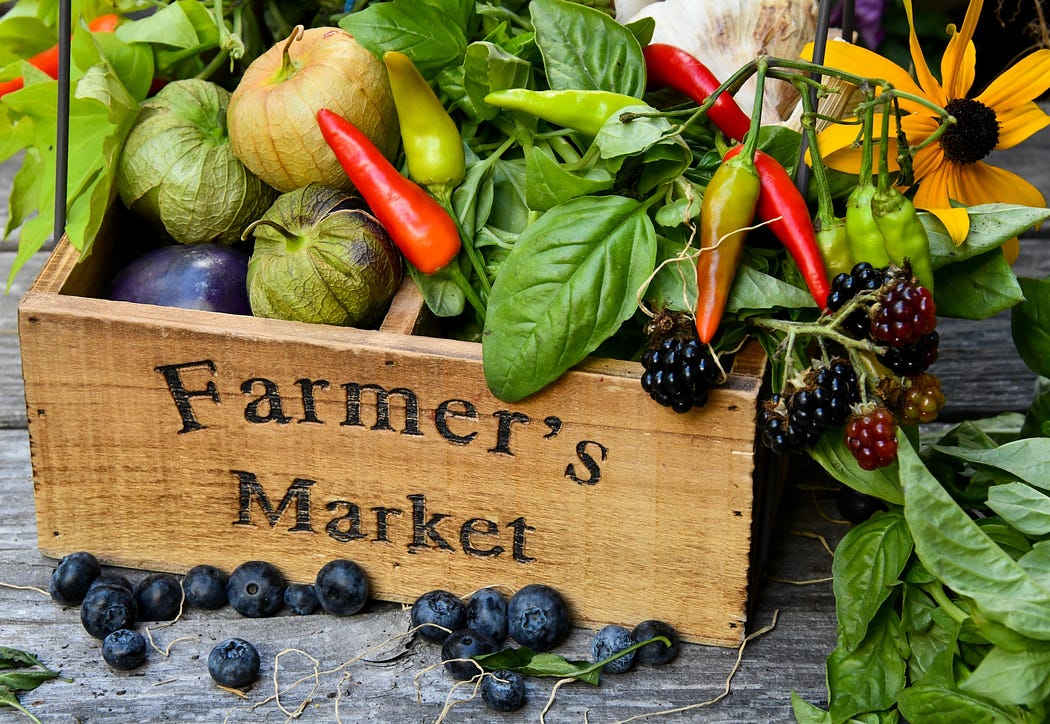Sweet Corn and Braiding Sweetgrass

I sat in front of the band at the farmer’s market to drink in the happiness all around me. It is the beginning of September, and the vendors’ stalls are full of sweet corn, tomatoes, peaches, and cantaloupe.
The boomer band that is sorta rock, sorta country western, and sorta singer-songwriter gets applause from passers-by. All the retired hobbyist musicians with a guitar who dreamed of being in a band get their chance, tip jar out.
My granddaughter loves the guy with a saxophone on the corner in front of the farmer’s market, who plays Baby Shark when she stops. She dances and more people stop and laugh and applaud and maybe tip.
I am also reading Braiding Sweetgrass, slowly, savoring its ripeness. I attended Robin Wall Kimmerer’s reading at The Birchbark Book Store in Minneapolis in 2013, I think. I attended readings at that store randomly. I noticed when the book started climbing the bestseller lists, in 2020, where it has stayed.
Looking for Hope
Braiding Sweetgrass is one of those gradual and surprise juggernauts that writers and publishers love. It grew by word of mouth until it found its moment in 2020 when we all were staying home and despairing about what we had done to our planet. We were reading and looking for hope. Braiding Sweetgrass is a simple and profound book that requires slow reading, dipping in for a while, and reflecting for a while.
Dr. Kimmerer is both a PhD botanist and a member of the Potawatomi tribe, and she brings both scientific and indigenous cultural sensibilities to this work. She talks of our reciprocal relationship to the earth. We provide benefits to plants, as they provide benefits to us. For example, sweetgrass flourishes in those places where it is harvested and can regenerate. She speaks to how indigenous harvesters don’t take more than 50% of a plant, so it can continue to grow — and we can continue to benefit.
Robin Kimmerer also talks about the ways we can respect the plants that provide for us, the animals that provide for us. It is a worldview of quiet reciprocity, quiet consequences for actions, and quiet hope.
The book is categorized by Birchbark Books under Nature, Plants, Science, Indigenous Lives, Memoirs, and maybe more. I would place it under spirituality, the understanding of universal truths as revealed in attention to the small details.
It explains why I love our farmer’s market. I pay a bit more for sustainably grown produce. I try and patronize the artisans and food truck vendors, too. Even if I don’t buy anything on a certain week, I want to know the potter is there, the jeweler, and the family farm going to its fifth generation. A weaver of colorful African baskets spurred me to find my 40-year-old African basket, a perfect market tote. I have visited the Ethiopian food truck and the one selling crepes.
It is living reciprocally, supporting each other. It is biting into a peach, and being surprised by golden juice squirting and dribbling out.
Word of mouth; reciprocity
The publisher of Braiding Sweetgrass is an independent publishing house, Milkweed Editions. The Birchbark Book store, an independent, was started by Louise Erdrich to become an intellectual center for indigenous work. The bookstore is that, and it is a neighborhood bookstore and a resource for many. (Her latest book, The Sentence, is a novel featuring the bookstore.)
We all need to hold on to ways and employ ways, that revise our relationship with the earth, and with each other. I know other cultural priorities perform in terms of extraction and maximizing profit. But exhausting a resource turns around and hurts us. It isn’t revenge, it is the simple consequences of reciprocity. It may be where science culture and values all meet up.
The world has big problems and this isn’t a post fixing big problems. It’s a post of gratitude for wonderful mornings at the farmer’s market, the sweetness of ripe peaches, the respect that is simple and profound, and for changing our world in small ways, step by step.
Like an unlikely bestseller, recommended from friend-to-friend.
Oh, and Dr. Kimmerer won the McArthur prize last year. She continues to live simply, although she has been tagged as a genius and has reaped the rewards of being a bestselling author, unexpectedly.
Maybe the universe’s reciprocity is at work.

Jean Powers
What a beautiful post. I love Farmers Markets – and that book. Thanks for reminding me of it. I think I’ll pick it up again. I’m also one of those retiree hobbyist musicians who plays with a band at the markets. Glad you are enjoying life with your granddaughter.💗
Dorie Benesh Refling
Love Louse Erdrich. Now I have a new author to discover. Thanks!
Sharon Johnson
Glad to hear Louise Erdrich is a favorite for you, too.